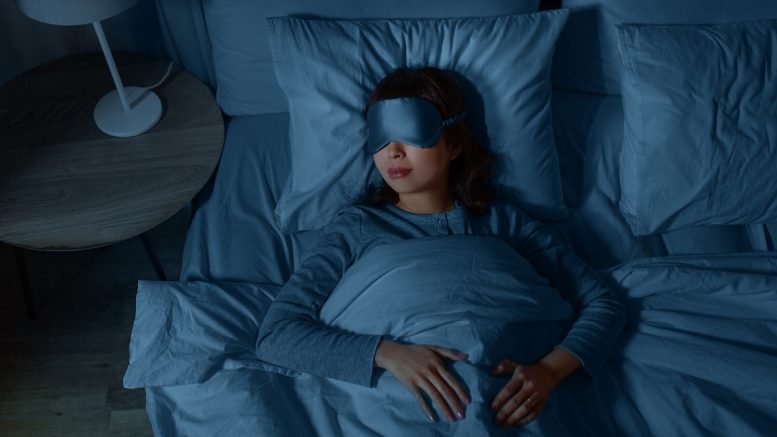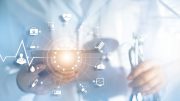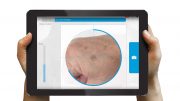Gone are the days when sleep masks were mere accessories for blocking out light. Today’s advanced sleep masks have become crucial players in digital health, functioning as personalized mini laboratories that analyze your sleep patterns, monitor vital signs, and even intervene in real time to enhance sleep quality. In an age where sleep deficits are a common issue, these advanced sleep masks are not just conveniences but necessities, serving as ground-breaking tools in preventive healthcare.
EEG Monitoring
The full range of sleep masks now includes models with ground-breaking Electroencephalogram (EEG) monitoring features. Traditional EEG monitoring often requires cumbersome equipment and a clinical setting. With modern sleep masks, people can gather intricate data right in the comfort of their bedrooms. These masks come with built-in EEG sensors that measure the electrical activity of the brain, providing insights into various sleep stages, including REM and deep sleep.
The data aids in understanding the sleep cycle better, revealing patterns or anomalies that could be indicative of sleep disorders. The non-intrusive nature of these masks also allows for long-term monitoring, offering a comprehensive look at one’s sleep health over time.
Heart Rate Monitoring
Heart rate monitoring isn’t a new concept in health gadgets. However, its integration into sleep masks offers an additional layer of insight into one’s sleep quality. A fluctuating heart rate can indicate various issues like stress or anxiety, impacting sleep adversely. The sensors in these sleep masks record real-time heart rate data, allowing for a granular analysis of sleep quality in relation to cardiovascular activity.
This data becomes particularly useful for people who may have conditions like arrhythmia, where understanding heart rate patterns during sleep could be crucial for medical treatment.
Oxygen Saturation
Low oxygen levels during sleep can be a dangerous health issue, often a sign of conditions like sleep apnea. Sleep masks equipped with oxygen saturation sensors aim to monitor and alert users if oxygen levels drop below a certain threshold.
The instant feedback provided by these masks can act as a crucial preventive measure, especially for people prone to respiratory issues. Moreover, longitudinal data collection allows for trend analysis, enabling healthcare providers to make more informed decisions when it comes to diagnosis and treatment.
Eye Movement Tracking
Another revolutionary feature in sleep masks is eye movement tracking. Rapid eye movements (REM) are a crucial indicator of sleep quality and serve as one of the key determinants for identifying sleep stages. Traditionally, studying eye movements would require elaborate setups that are both expensive and uncomfortable for long-term use.
Sleep masks with eye movement sensors bring this technology to the average consumer, monitoring and recording eye movements seamlessly throughout the night. This feature is essential for the detection and analysis of sleep disorders like insomnia and narcolepsy.
Temperature Sensors
Temperature plays a vital role in sleep quality. Changes in body temperature can affect the sleep cycle, with cooler temperatures generally promoting better sleep. Advanced sleep masks now come with integrated temperature sensors that continuously monitor skin or body temperature.
By doing so, these masks offer a more nuanced understanding of how temperature fluctuations correlate with different sleep stages or disruptions. This data is valuable not just for comfort but also for addressing issues like night sweats, which can severely impact sleep quality.
App Integration
In a world where everything is interconnected, the true power of digital health monitoring lies in data analytics and interpretation. Many sleep masks offer app integration, converting the raw data collected into actionable insights. These apps analyze it, compare it with general health standards, and even offer personalized advice for improving sleep quality. App integration turns the sleep mask from a mere data collection tool into an intelligent device capable of actively contributing to better health.
Haptic Feedback And Audio Cues
The concept of real-time feedback takes digital health monitoring to a whole new level. Sleep masks equipped with haptic feedback or audio cues adjust in real time to the user’s sleep state.
For instance, if the mask detects restlessness or a sudden increase in heart rate, it might trigger a calming sound or a gentle vibration to soothe the user back into a peaceful state. This active participation in sleep management not only improves sleep quality but also offers immediate intervention, enhancing the user’s overall well-being.
Snoring Detection
Snoring can be an indicator of underlying health conditions like sleep apnea or obesity. Sleep masks with snoring detection capabilities use sensors and microphones to detect the occurrence and intensity of snoring. Some even include features like inflatable cushions that subtly adjust the user’s head position to reduce snoring. These functionalities make the sleep mask a proactive tool in managing and mitigating sleep-related issues that might otherwise go unnoticed.
Conclusion
Sleep masks have come a long way from being just a simple tool to block out light. With the integration of various sensors and smart technologies, these devices are at the forefront of digital health monitoring focused on sleep.
From monitoring brain activity and heart rate to offering real-time interventions, sleep masks have carved a unique niche in the healthcare technology market. They offer an unprecedented combination of comfort and advanced monitoring, making them an invaluable tool for anyone looking to improve their sleep quality and, by extension, their overall health.




